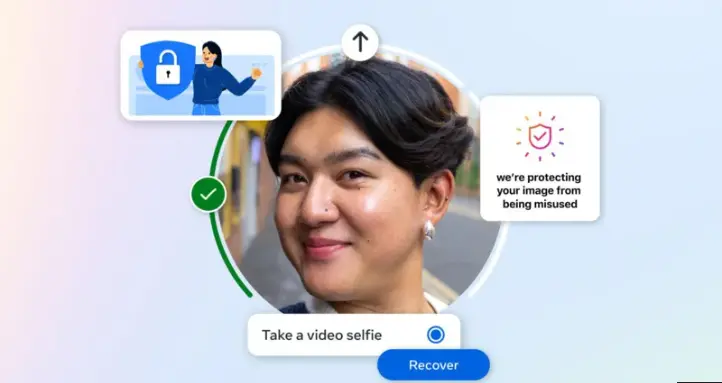Meta’s New Initiative to Combat Celebrity Scam Ads on Facebook and Instagram
In response to growing concerns over misleading ads, Meta has launched a crackdown on celebrity scam ads across Facebook and Instagram. These ads, often featuring unauthorized celebrity endorsements, have misled millions of users worldwide. By using high-profile personalities without consent, scammers make fake advertisements appear credible, causing financial losses and reputational damage for both consumers and celebrities. Meta’s new policies and tools aim to safeguard users from such deceptive content, demonstrating a commitment to more transparent and secure advertising practices.
What Are Celebrity Scam Ads?
Celebrity scam ads are a form of fraudulent advertising that capitalizes on the trust users place in well-known figures. Scammers often use edited images or fabricated testimonials from celebrities to promote fake products, services, or investment schemes. This tactic plays on users’ confidence in public figures, making them more likely to engage with the advertised content or make purchases based on false endorsements. Given the widespread influence of celebrities on social media, these scams can rapidly reach millions.
In the Middle East, where social media use is high and trust in local celebrities and influencers is strong, these types of scams pose a unique risk. With millions using Facebook and Instagram as primary sources for both content and shopping, users are particularly vulnerable to ads that mimic legitimate endorsements.
Meta’s Response: A Multi-Pronged Approach to Ad Verification
Meta’s latest crackdown on celebrity scam ads comes as part of a broader initiative to improve ad transparency and protect user trust. This initiative includes:
- Enhanced Ad Monitoring and Detection Tools: Meta has expanded its AI-driven tools to monitor ads across Facebook and Instagram more closely, flagging those that use celebrity images and names without proper authorization. The technology can now better detect signs of fraudulent advertising, identifying keywords, images, and patterns commonly associated with scam ads.
- Strengthened Policies on Ad Content Verification: To combat unauthorized use of public figures, Meta has also updated its advertising policies, requiring more stringent verification for endorsements. Advertisers must now prove they have the right to use celebrity names and images in promotional content. Ads that don’t meet these standards will be removed, and repeat offenders may face account suspensions.
- User Reporting Features: Meta has improved reporting features, encouraging users to flag suspicious ads. When users report an ad for misuse of celebrity endorsements, Meta’s review team will investigate and remove offending ads when appropriate. This proactive step empowers users to participate in keeping the platform secure.
- Collaborations with Celebrities and Brands: Meta has started working with celebrities and brands to identify and remove ads that misuse their likeness. This partnership allows for quicker identification of fraudulent content, protecting both the users and the public figures involved.

Why This Crackdown Matters
The presence of celebrity scam ads not only harms consumers but also diminishes the credibility of social media advertising as a whole. Meta’s new policies aim to restore trust in the platform, making it a safer space for both advertisers and users. As fraudulent ads proliferate, legitimate brands face difficulties in reaching users who may have become wary of clicking on ads. By implementing stricter verification processes, Meta is setting a precedent for accountability in social media advertising.
For users in the Middle East, where influencer marketing and social media commerce are especially prominent, the impact of this initiative could be significant. Reducing the number of scam ads could enhance user trust, benefiting both consumers and brands that rely on Meta’s platforms for engagement.
Data Insights on Social Media Fraud
A recent survey conducted by Meta revealed that over 30% of users have encountered fake celebrity ads, with the financial losses from these scams amounting to millions annually. Middle Eastern markets, where social media is a key platform for brand discovery and product reviews, have been particularly affected, as users increasingly rely on celebrity and influencer endorsements when making purchasing decisions.
Data from cybersecurity firm Norton also showed that more than 70% of social media users in the Middle East reported encountering at least one fraudulent ad in the past year, highlighting the urgency for this crackdown. This high prevalence not only jeopardizes user experience but also weakens the advertising ecosystem, as legitimate advertisers face declining user trust in online ads.
Impact on Brands and Marketers
Meta’s new policies present both challenges and opportunities for marketers. Brands that partner with legitimate celebrities and influencers may benefit from the enhanced credibility of the platform as fake endorsements are weeded out. However, these policies also mean stricter compliance requirements, pushing advertisers to obtain proper permissions and adhere to Meta’s updated guidelines.
For Middle Eastern brands that rely heavily on celebrity endorsements, adhering to Meta’s policies will be crucial to maintaining compliance. This region, where celebrity and influencer marketing is popular, might see a renewed emphasis on legitimate partnerships as Meta’s new guidelines require clear authorization proof for using celebrity likenesses in ads.
To explore this topic further, check out our Meta Ads: Transforming Online Marketing for more insights.
Key Takeaway for Marketing Managers
Meta’s crackdown on celebrity scam ads underscores the need for transparency and compliance in social media advertising. For marketing managers targeting audiences in the Middle East, this development highlights the importance of securing authorized endorsements and maintaining clear documentation. Adhering to Meta’s guidelines can help brands build and retain consumer trust, an invaluable asset in a landscape increasingly sensitive to fraud. By focusing on legitimate partnerships and utilizing Meta’s tools for ad verification, marketers can strengthen their ad strategies and continue leveraging influencer and celebrity endorsements effectively.



